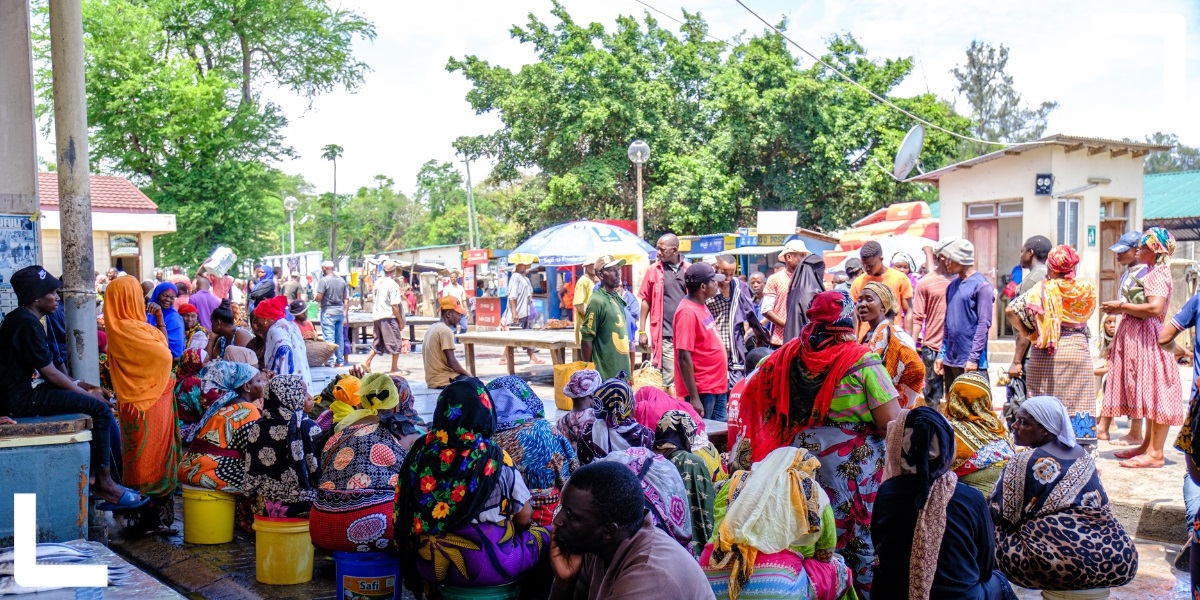By Ademola Omoegun and Stephen Gelb
The taxation of mobile money transactions has become a popular policy in many African countries in recent years. This drive is largely motivated by rising national debts and the growing popularity of mobile money transactions on the continent, especially amongst low-income earners, notably household microenterprises (HMEs).
HME operators not only enjoy the convenience of mobile money transfers, but they also find it beneficial to have the safety of not having to handle cash, as well as health advantages in the light of the Covid pandemic. Furthermore, mobile money is particularly attractive to many HMEs which do not have formal bank accounts for various reasons, including a lack of trust in the formal banking system, and logistic issues, due to a lack of bank outlets in close proximity. The possibility of carrying out financial transactions securely and conveniently on a basic mobile phone is particularly useful. Therefore, amongst other things, mobile money has also served to boost financial inclusion in Africa.
National tax, local tensions
Across Africa, many national governments desperate to raise revenues – due to mounting debt burdens worsened by the impacts of Covid – are continuously resorting to the taxation of mobile money transactions. Authorities see the growing popularity of mobile money as a unique opportunity to raise additional revenues, especially from HMEs, which they perceive as being under-taxed or evading taxes. In the view of national governments, mobile money taxation represents a convenient way of raising tax revenues with limited extra effort, as the tax is remitted directly by mobile money operators, who charge users based on their transactions. Therefore, the tax requires no significant effort, as might otherwise be the case if informal enterprises were to be formalised.
In the last few years, taxes on mobile money transactions have increasingly been implemented in various African countries, with Uganda, Zimbabwe, Côte d’Ivoire, Kenya and the Republic of the Congo having implemented this tax prior to the Covid pandemic in 2020, while Tanzania, Cameroon and Ghana have done the same since. This is despite widespread opposition to the introduction of the tax, including from HMEs, who see the tax as an extra burden cutting into their already limited profits with no clear benefit to them. This is even more pertinent, considering the tax is generally being collected by national governments, while the direct management of HMEs’ activities is mainly the responsibility of local levels of government. This situation will therefore potentially worsen existing tensions between HMEs and local government authorities, who often apply stringent urban management practices towards such enterprises, largely with the aim of formalising them.

A new tax on mobile money in Ghana has led to a reduction in use among HMEs. Photo credit: Peeter Viisimaa / iStock
Widespread implementation, widespread discontent
Despite the controversies surrounding this new tax, national governments continue to push for its implementation, notwithstanding the significant backlash. These contentions have been observed in a number of cities where the ACRC is active.
In 2019, for example, the government of Malawi withdrew the proposed 1% tax shortly after its proposal, following widespread opposition. In Ghana, the 1.5% tax implemented in 2022 has been reduced to 1% in 2023, following extensive complaints. In Zimbabwe, due to the persisting financial crisis, authorities charge a 2% tax for local currency electronic transfers, and 4% for all domestic foreign currency transactions, which has worsened tensions. Even in Kenya, which is seen as the pioneer of the mobile money revolution in Africa, discussions are currently ongoing in parliament regarding the introduction of the tax following the budget presentation in January. This is despite widespread discontent, as the recently elected president seeks funds to address mounting debts and fund spending plans.
Mobile money tax is particularly aimed at capturing more revenues from HMEs and workers in the informal sector generally, who are key users of mobile money. However, in many instances, the immediate impact of the implementation of the tax has been a significant drop in mobile money transactions, with HMEs keen to avoid it, which is counter to the aims of the tax. For example, the implementation of the tax in Ghana in 2022 saw an immediate drop in transactions, as customers sought to avoid the tax, with HMEs exploiting loopholes in its implementation, as described by an Accra-based ACRC researcher:
“Initially after the e-levy was implemented, mobile money transactions reduced significantly because everyone thought that it affected all transactions. However, people later realised that if you go to the mobile money vendor with cash and transfer through them and not through your personal e-wallet, the e-levy does not apply, then people started using mobile money transfers again… so after the initial drop, transactions picked up… However, from January 2023 the tax now covers all transactions, although at a reduced rate… and again there has been a reduction in the use of mobile money.”
Which way forward?
Clearly, many national governments have identified HMEs and the informal sector as a viable avenue to increase revenues. What is unclear, however, is what benefits HMEs will gain from their potential new tax contributions. There is little evidence of engagement with HMEs in the development of these new tax policies, or an elaboration of the inherent benefits that will accrue to them if the proposed new taxes are successfully implemented.
A further concern is the fact that these proposed taxes are collected centrally and not locally, and with no available evidence that revenues generated will accrue in any form to local governments who are most directly involved in the management of HMEs. Not only will HMEs potentially experience a reduction in profits but they will also probably continue to suffer from unfavourable policies at the local level, as has often been the case. Also concerning is the potential harm that implementation of this tax could do to the progress made in financial inclusion through mobile money. The impact of the new tax, at least in the short run, as witnessed in Ghana, has been a reduction in the use of mobile money by HMEs.
Yet again, as has often been the case in the past, what authorities aim to gain from HMEs is clear. However, the benefits that will accrue to them in return, to aid their enterprise and boost their productivity and profitability, remains in doubt. This balance must be addressed if HMEs are to continue being the important source of employment and livelihoods for a large share of Africa’s population, as well as a potential source of substantial revenue for governments, and also if the desired vision of economic inclusion is to be achieved.
Header photo credit: Nichika Yoshida / Unsplash. Mzizima Fish Market in Dar es Salaam, Tanzania.
Note: This article presents the views of the author featured and does not necessarily represent the views of the African Cities Research Consortium as a whole.
The African Cities blog is licensed under Creative Commons Attribution-NonCommercial-NoDerivatives 4.0 International (CC BY-NC-ND 4.0), which means you are welcome to repost this content as long as you provide full credit and a link to this original post.


